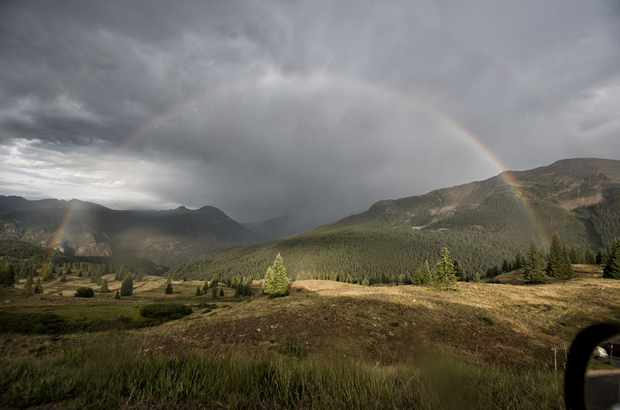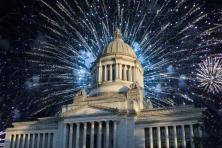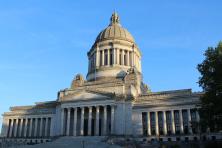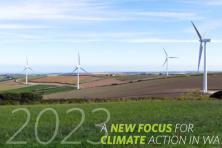The past few weeks have been amazing—led by youth across the globe who took to the streets in their communities calling for strong action to address the crisis. In Washington, we’re well on our way after a remarkable 2019 legislative session taking action to transition to a clean energy economy. All of our electricity will come from 100% clean sources by 2045, we will have more energy efficient commercial buildings, and we made gains towards cleaning up our transportation systems.
Unfortunately, climate policy is not a one-and-done type of deal. We need many solutions working together, as climate science reports show an enormous amount of work left to ensure a livable future on our planet. We made gains to move beyond oil to power our transportation systems, but the transportation sector is still our state’s largest source of climate pollution, and the oil industry has continuously blocked our progress.
With our electrical grid now on a path to 100% clean, we have to focus on electrifying everything we can—from our buildings to our cars and our public transit system—and on preserving our local clean fuel resources for the hardest-to-electrify sectors. There are immediate opportunities, and we will be headed back to Olympia in 2020 to continue building the momentum we need for strong action on climate. Here’s a look at some of the progress we’ve made—and some upcoming opportunities for you to make a difference:
- Implementing 100% Clean Electricity: Now that the path to clean power is law in our state, we’re working with partners to make sure the bill is effectively implemented. Multiple state agencies including the Department of Commerce, the Utilities and Transportation Commission, and the Department of Health are all part of rulemaking processes. This law provides an opportunity to transform the way utilities do business in Washington. Our top priority is ensuring that utilities transition away from fossil fuels as quickly as possible, while prioritizing benefits to highly impacted communities and investing in clean energy projects with strong labor standards.
- Moving a Clean Fuel Standard Forward: Transportation remains our largest source of climate pollution in Washington, as well as the largest source of harmful air pollutants that decrease our air quality and negatively impact public health. The legislature has continuously failed to act on this important policy, but that hasn’t stopped us from expanding the broad coalition of public health organizations, local governments, local businesses, utilities, the auto industry, and others in support of HB 1110. A Clean Fuel Standard is the foundation for many of our clean transportation initiatives. It will increase the use of electricity and locally produced renewable fuels, reducing our reliance on big oil and cleaning up our air quality.
Additionally, instead of waiting for the legislature to act on a statewide policy, the Puget Sound Clean Air Agency has taken matters into its own hands, showing strong leadership by moving forward with a regional Clean Fuel Standard. We’re working in partner with a number of partners to support this effort. Watch for future emails from us on how you can help.
- Clean Buildings: Emissions from our homes and buildings are growing at a higher rate than any other sector. Buildings account for about 27% of Washington State’s greenhouse gas emissions, and burning gas in buildings is a big source of those emissions. Now that we’ve made 100% clean electricity the law of the land, electricity will be the cheapest, cleanest, and most reliable way to power our homes and our lives. Furthermore, did you know that burning gas inside the home releases nitrogen oxide and carbon monoxide, which are harmful to your health? Beyond protecting our climate, transitioning to all-electric buildings will improve indoor air quality and make our communities more resilient and safe in the face of natural disasters.
- Not moving backwards: Tim Eyman’s Initiative 976 would slash four billion dollars of funds from cities and counties across the state, repealing critical transportation funding and limiting our ability to apply solutions to the biggest climate problem we have. It would eliminate dollars used to fix and maintain highways, retrofit bridges and overpasses, fund transit, build new, voter-approved transit projects, improve freight corridors, and invest in the Washington State Patrol.
It's all hands on deck this fall! We need your help spreading the word to stop Tim Eyman's statewide I-976 before people receive their ballots later this month. Support the No on 976 campaign and let Washingtonians know this bad plan would cut billions of dollars for local, regional, and state roads, transit, and transportation funding.
If you are like me, you are motivated by the increasing momentum for climate action from our 2019 legislative success, local government action, and the recent energy from the youth-led climate strike. But you and I also realize the scale of the problem and the amount of work left to be done. It’s going to take us all, and we’ll need your help continuing to demand strong, bold action.





